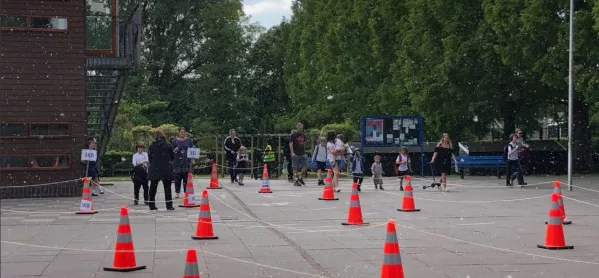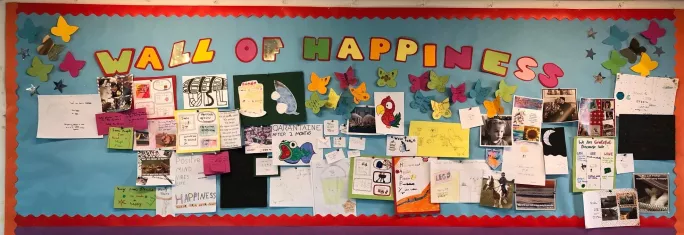We had no way to predict how our students would respond to returning to school on 11 May, when Dutch schools reopened to more pupils. While we could guess and put things in place we thought might help, what we really needed to do was to be reactive to students’ needs as they adapted to the new normal we had created.
So how have they reacted? These are some of the key observations I have had since students came back three weeks ago.
1. We had fewer challenges than expected
Our students returned after nine weeks at home. We noticed that, in general, only-children were delighted to be back with friends; those with numerous siblings were grateful for the calm and predictability of the classroom, and many older students had new levels of appreciation for school.
It was wonderful to observe how many children had developed new skills, adopted new hobbies, enjoyed slower routines and even become more independent. From foundation stage to key stage 2, many teachers noted significant new levels of independence.
Acknowledging, discussing, sharing and celebrating all of this was an important part in helping our students with their transition back into school.
2. Most wanted to just get on with it
On their first day, every class had a virtual assembly based on two excellent books written about the coronavirus. You can find them here: KS1 and KS2.
In some classes, this opened up a dialogue about how children were feeling. Kim Webb, a Year 2 teacher, remarked that it helped them discuss their worries, especially once she explained that she was a little worried too.
Other children wrote about how they were feeling and they felt a range of emotions. Providing these opportunities to share is so important; and so too is allowing children not to share.
Many were just happy to be back in school and simply wanted to get back to some sense of normality, without focusing on how they felt.
3. Missing friends was a key challenge
Our children returned to school in half classes and only 60 per cent came back. Many of them were therefore not with their friends. Some were upset about this and needed time to adjust.
We supported them by creating ‘Walls of Happiness’ (below) and other communication boards on which they put messages and pictures for one another.
It was a wonderfully positive way to help students feel connected despite not being together.
4. Everyone needed a bit of fun
Students and staff alike noticed how quiet and strangely calm school seemed.
Some children commented that they liked the smaller groups and “the peace” but there was a definite need to lighten the atmosphere, too.
Most classes played cheerful music as children came in at the start of the day, many teachers broke up the day with GoNoodle dances, and reminding children not to pop adults’ “social distance bubbles” was a lighthearted way to maintain social distancing.
Discussions and displays also focused on what we felt grateful for which helped children process some of the new changes they had experiened over the past few weeks.
5. Adapting to new rules was easier than expected
New rules and routines were numerous. As ever, the children showed flexibility and adaptability.
Videos sent home prior to school opening really helped with this. They showed everything from year-group specific entrances to teacher zones in the classroom; and, having seen them, children came in more relaxed and prepared than they might have done.
Of course, some children needed frequent, gentle reminders, but they adapted remarkably well.
Rhiannon Phillips-Bianco is a Year 4 class teacher and wellbeing and mental health curriculum leader at Junior School Leidschenveen, British School in The Netherlands. She tweets @RhiPhillipsB




